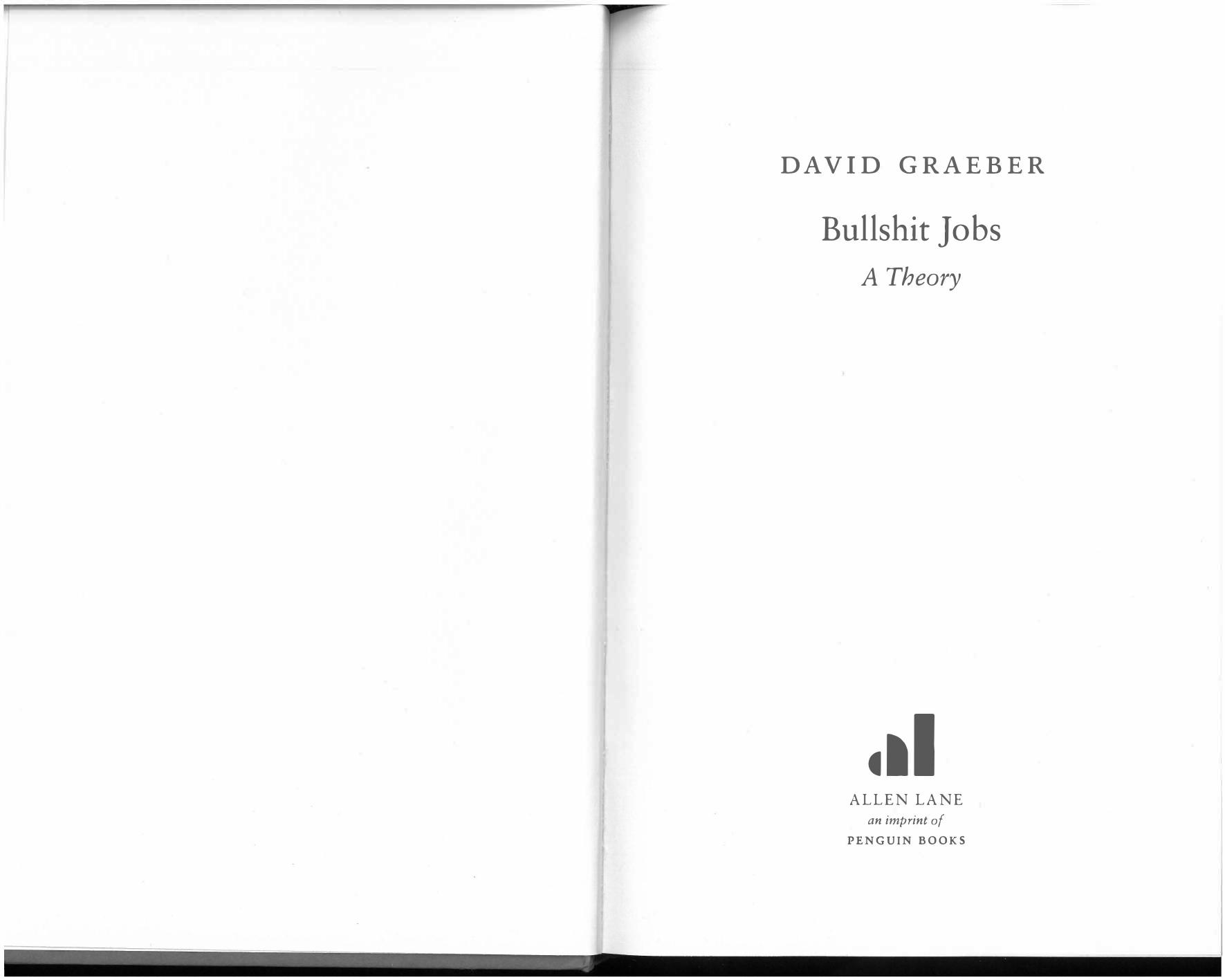Bullshit Jobs by David Graeber

Author:David Graeber
Language: eng
Format: epub, pdf
Publisher: Simon & Schuster
on some ways in which the current form of managerial feudalism resembles classical feudalism, and other ways in which it does not
The upper quintile is growing in size and income because all the value created by actual productive workers in the lower quintiles gets extracted by those at the top. When the top classes rob everybody else, they need a lot more guard labor to keep their stolen loot secure.
—Kevin Carson
If we return to the example of the feudal overlord in chapter 2, this actually makes perfect sense. I was using feudal overlords and retainers as a metaphor at that point. But in the case of banks, at least, it’s not clear how much is metaphor and how much is literal truth. As I pointed out, feudalism is essentially a redistributive system. Peasants and craftsmen produce things, to a large extent autonomously; lords siphon off a share of what they produce, usually by dint of some complex set of legal rights and traditions (“direct juro-political extraction” is the technical phrase I learned in college),25 and then go about portioning out shares of the loot to their own staff, flunkies, warriors, retainers—and to a lesser extent, by sponsoring feasts and festivals and by occasional gifts and favors, giving some of it back to the craftsmen and peasants once again. In such an arrangement, it makes little sense to speak of separate spheres of “politics” and “the economy” because the goods are extracted through political means and distributed for political purposes. In fact, it was only with the first stirrings of industrial capitalism that anyone started talking about “the economy” as an autonomous sphere of human activity in the first place.
Under capitalism, in the classic sense of the term, profits derive from the management of production: capitalists hire people to make or build or fix or maintain things, and they cannot take home a profit unless their total overhead—including the money they pay their workers and contractors—comes out less than the value of the income they receive from their clients or customers. Under classic capitalist conditions of this sort it does indeed make no sense to hire unnecessary workers. Maximizing profits means paying the least number of workers the least amount of money possible; in a very competitive market, those who hire unnecessary workers are not likely to survive. Of course, this is why doctrinaire libertarians, or, for that matter, orthodox Marxists, will always insist that our economy can’t really be riddled with bullshit jobs; that all this must be some sort of illusion. But by a feudal logic, where economic and political considerations overlap, the same behavior makes perfect sense. As with the PPI distributors, the whole point is to grab a pot of loot, either by stealing it from one’s enemies or extracting it from commoners by means of fees, tolls, rents, and levies, and then redistributing it. In the process, one creates an entourage of followers that is both the visible measure of one’s pomp and magnificence, and at
Download
This site does not store any files on its server. We only index and link to content provided by other sites. Please contact the content providers to delete copyright contents if any and email us, we'll remove relevant links or contents immediately.
Tools of Titans by Timothy Ferriss(7078)
Change Your Questions, Change Your Life by Marilee Adams(6753)
Deep Work by Cal Newport(5684)
Man-made Catastrophes and Risk Information Concealment by Dmitry Chernov & Didier Sornette(4885)
Big Magic: Creative Living Beyond Fear by Elizabeth Gilbert(4834)
The Slight Edge by Jeff Olson(4797)
Digital Minimalism by Cal Newport;(4733)
The Motivation Myth by Jeff Haden(4613)
Stone's Rules by Roger Stone(4502)
Ego Is the Enemy by Ryan Holiday(4121)
The Laws of Human Nature by Robert Greene(4073)
Tuesdays with Morrie by Mitch Albom(3920)
Rising Strong by Brene Brown(3852)
Eat That Frog! by Brian Tracy(3620)
Skin in the Game by Nassim Nicholas Taleb(3557)
Playing to Win_ How Strategy Really Works by A.G. Lafley & Roger L. Martin(3450)
The Money Culture by Michael Lewis(3365)
Skin in the Game: Hidden Asymmetries in Daily Life by Nassim Nicholas Taleb(3337)
Bullshit Jobs by David Graeber(3286)
